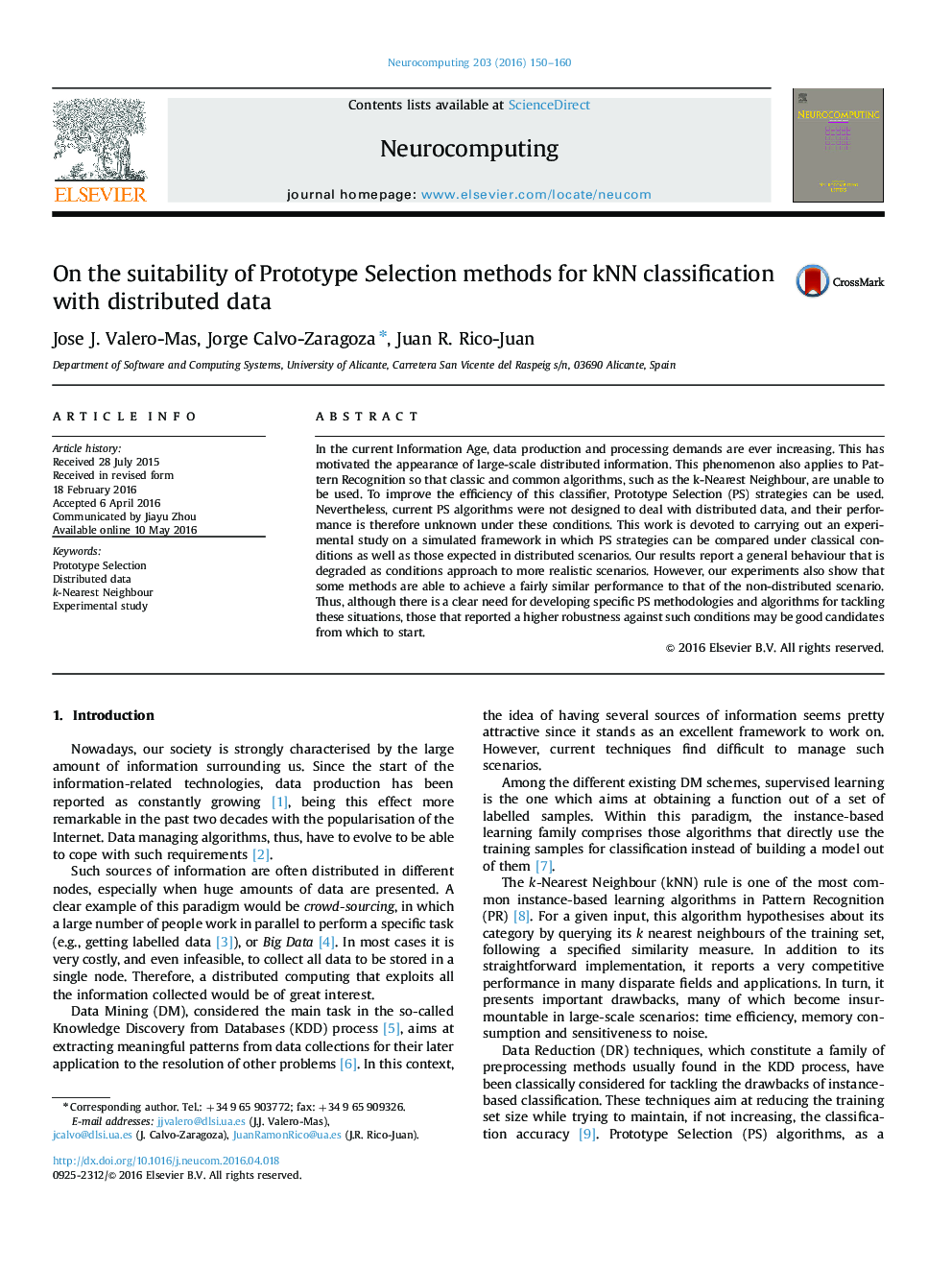| Article ID | Journal | Published Year | Pages | File Type |
|---|---|---|---|---|
| 405741 | Neurocomputing | 2016 | 11 Pages |
In the current Information Age, data production and processing demands are ever increasing. This has motivated the appearance of large-scale distributed information. This phenomenon also applies to Pattern Recognition so that classic and common algorithms, such as the k-Nearest Neighbour, are unable to be used. To improve the efficiency of this classifier, Prototype Selection (PS) strategies can be used. Nevertheless, current PS algorithms were not designed to deal with distributed data, and their performance is therefore unknown under these conditions. This work is devoted to carrying out an experimental study on a simulated framework in which PS strategies can be compared under classical conditions as well as those expected in distributed scenarios. Our results report a general behaviour that is degraded as conditions approach to more realistic scenarios. However, our experiments also show that some methods are able to achieve a fairly similar performance to that of the non-distributed scenario. Thus, although there is a clear need for developing specific PS methodologies and algorithms for tackling these situations, those that reported a higher robustness against such conditions may be good candidates from which to start.
